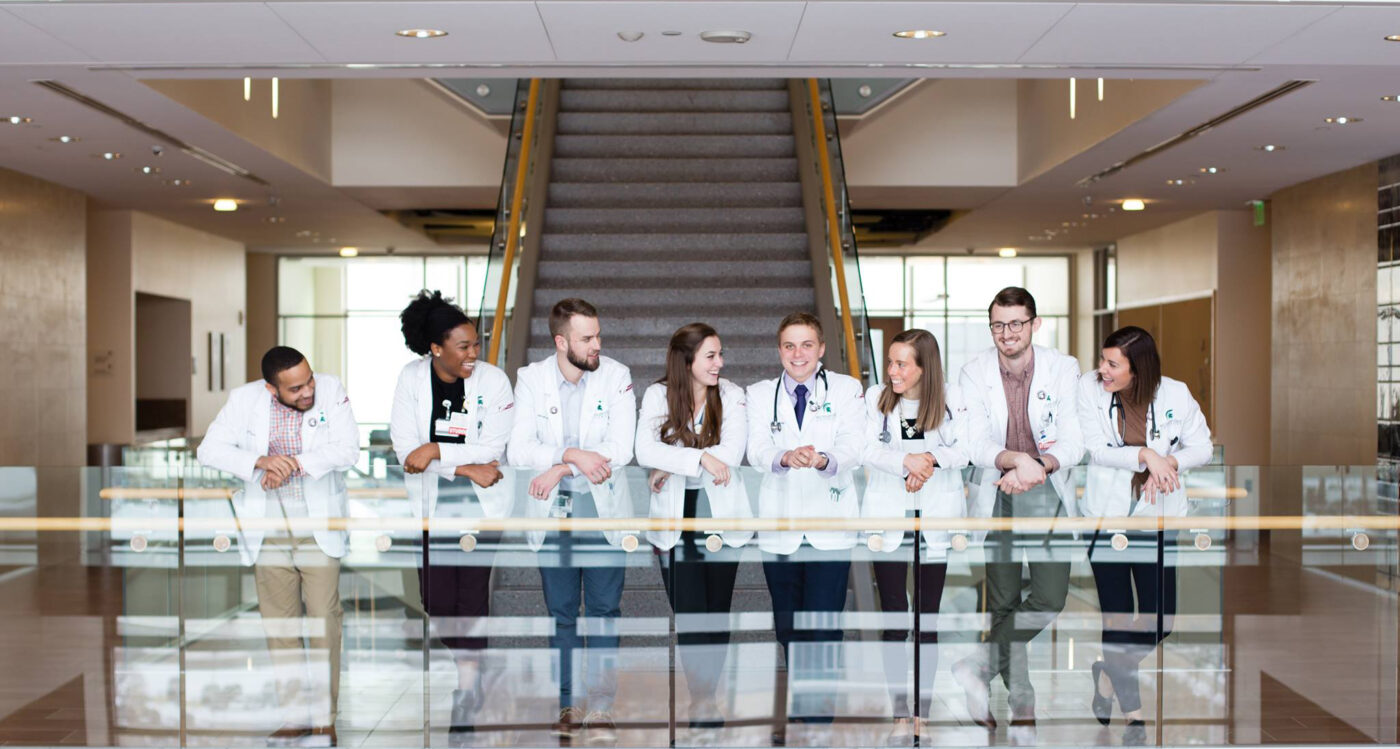If you’ve been looking at medical school websites for their admissions requirements and deadlines, you might have seen the words “rolling admissions.” Here we will explain the term and how it works in the medical school admissions system.
The Different Kinds of Admissions Processes
There are two kinds of admissions: rolling admissions and regular admissions. There’s only one difference between the two, but the difference is enough to impact when you apply.
Rolling admissions means the admissions committee reviews AMCAS, AACOMAS, or TMDSAS applications. They do not wait until the application deadline has passed to review applications.
Regular admissions means that the admissions committee waits until the application deadline has passed to review any applications it receives.
In 2025, many institutions have enhanced their online review processes to review applications almost immediately after submission, making the rolling admissions process even more efficient.
Pros of Rolling Admissions
Rolling admissions can be great if tackled the right way. The system works best for ambitious students who send in their applications as soon as admissions open.
Rolling admissions equals less anxiety because you’ll receive an answer much sooner than you would after regular admissions. The admissions committee will review your application with the next batch as soon as it comes in. Due to improved digital processing, many medical schools now provide decisions within 4–6 weeks of submission.
Rolling admissions gives you breathing room. You’re only bound to one specific school if you go through the early decision process and the school accepts you. If you apply to a school that uses the rolling admissions process, you have until the end of the application period to accept your spot.
For example, say one of the applications opens in May and closes in November. If you submit your application in May and you’re accepted in August, you’ll still have until November to take your spot. This gives you a cushion. You can continue sending applications to other schools and then decide in November. Or, if it’s your dream school, you’ll know immediately whether you got in!
Rolling admissions also helps with financial aid. Once you know where you’re going, you can create a budget and save money for school. You’ll better know how much you’ll need to borrow. It also gives you more time to focus on scholarship and grant applications. With real-time financial aid updates now available online, early acceptance enables you to better plan your budget and scholarship applications. The less debt you graduate with, the better!

Cons of Rolling Admissions
While rolling admissions is great for ambitious students, it’s not so great for students who take longer to send in applications.
Regular decisions ensure that every application receives an equal chance. Rolling admissions offer no such guarantee. If the class size is small, you must submit your application as early as possible. Otherwise, the applications will close when the class is full–even if that’s months before the set deadline. If you don’t apply immediately, you could lose your chance at a spot.
Not only could you lose your chance at a spot, but you’ll face tougher competition. Say there are only five spots left when you submit your application. If the university has received a dozen other applications, you have a lesser chance of getting in than when there were 20 open spots. Since many programs now have reduced class sizes and heightened competition in 2025, delaying your application can mean the available spots fill up quickly—even before the official deadline.
If you submit your application late, you’ll receive an answer late. While this is technically fair, it’s a major pain. Furthermore, if you submit your application late, your chance of acceptance is diminished, and you may also face delays that impact your financial aid planning.
Be careful with deadlines. While you might have until December to submit your secondary application, your letters of recommendation or other supporting documents might be due earlier than that. Check deadlines often to make sure you’re not missing anything important. Some universities will accept late documents, but others won’t. Don’t take the chance!
Now that you know the difference between rolling admissions and regular admissions, you can submit your applications accordingly. Each university you apply to should have its admissions guidelines on its website. We recommend making a list of all the universities you’re applying to and taking note of what type of admissions cycles they use. You should also write down the deadlines for each one. This list could be in an Excel spreadsheet, a Word document, or even in a notebook. This will help you stay organized and not miss any important deadlines.
Leveraging Digital Tools in Admissions
In 2025, digital platforms have transformed how medical schools process applications. Modern admissions committees now use advanced online systems that offer real‑time status updates and automated document tracking.
This means that once you submit your application, it is immediately reviewed and processed by sophisticated digital tools. Applicants benefit from features such as online dashboards, instant notifications, and integrated financial aid calculators that help streamline the process.
These advancements reduce waiting times and allow you to monitor your application progress throughout the cycle. For more insights on modern admissions and how these digital tools can enhance your application strategy, visit our Medical School Admissions Consulting page.
Mastering Your Application Timeline
Organizing your application timeline is critical—especially in a rolling admissions environment where early submission is key. Creating a detailed schedule helps you keep track of primary and secondary deadlines as well as all supporting documents like letters of recommendation.
With many medical schools now offering online portals that consolidate all deadline notifications, you can easily manage your progress. Using digital calendars and spreadsheets lets you plan and avoid any last‑minute rushes. For comprehensive strategies for planning your application journey, check out our Medical School Guides for tips and best practices.
Financial Aid in a Rolling Admissions System
One significant advantage of rolling admissions is that early acceptance can simplify financial planning. When you receive an early decision, you can promptly explore your financial aid options—whether that involves applying for scholarships, grants, or budgeting for loans. Many schools now provide online financial aid portals with real‑time updates, making comparing offers and planning your finances more manageable. This timely information lets you adjust your budget and focus on securing additional funding through scholarships or grants.
Student Perspectives on Rolling Admissions
Hearing directly from peers who have successfully navigated the rolling admissions process can offer invaluable insights and inspiration. Many successful applicants emphasize the benefits of submitting applications early to reduce stress and gain the flexibility of comparing multiple offers.
Authentic testimonials and case studies highlight how early decisions have enabled students to secure financial aid and make informed choices about their future. These first‑hand accounts can provide realistic expectations and strategies for submitting your application in a competitive environment. For more real‑life stories and tips, check out our Medical Internships and Pre-Med Internships Abroad page, which features numerous success stories and testimonials.
Conclusion
It’s hard enough applying to medical school. That’s why International Medical Aid is here to make the process easier. That’s why we offer medical school admissions consulting. We can review your primary and secondary applications, go over your personal statement and secondary essays, and even conduct a mock interview to give you a sense of what an actual interview might be like.
Now that you understand the rolling admissions process let’s discuss AMCAS, AACOMAS, TMDSAS, and our definitive guides to medical school. Our blog contains information and resources to help you on your journey.
If you’re confused about the differences between primary and secondary applications or your personal statement vs. secondary applications, the following guides contain all of that information.
- Texas Medical and Dental School Application Service (TMDSAS)
- American Association of Colleges of Osteopathic Medicine Application Service(AACOMAS)
- American Medical College Application Service (AMCAS)
- AMCAS vs. AACOMAS
- Doctor of Medicine vs. Doctor of Osteopathic Medicine: The Differences
Are you deciding where to go to medical school? Check out these universities.
- Baylor College of Medicine
- George Washington University School of Medicine
- Vanderbilt University School of Medicine
- St. George’s University School of Medicine
- Lake Erie College of Osteopathic Medicine (PA)
- Sidney Kimmel Medical College at Thomas Jefferson University
- Wake Forest University School of Medicine
- Western University of Health Sciences (CA)
- Drexel University College of Medicine
- Stritch School of Medicine at Loyola University Chicago
- Georgetown University School of Medicine
- Yale School of Medicine
- Perelman School of Medicine
- UCLA Medical School
- NYU Medical School
- Washington University School of Medicine
- Johns Hopkins School of Medicine
- Brown Medical School
Is the school you’re looking for not listed? We add new guides all the time, so check our blog every week.
If you have any questions or need further assistance, please reach out to us. International Medical Aid is here to help. In addition to the free resources on our blog, we also offer medical school admissions consulting. We’re here for you, whenever you need us.





